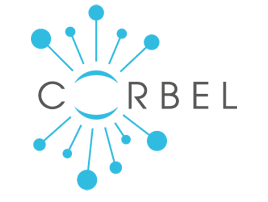1st Open Call for Research Projects
CORBEL seeks to harmonise access to European Research Infrastructures (RIs) joining their various expertise across the range of life-science disciplines. This facilitated access is of particular relevance for advanced interdisciplinary research projects, which could highly benefit from the integration of several specialist services and technologies such as biobanking, curated databases, systems biology, mouse mutant phenotyping, marine model organisms, advanced imaging technologies, high-throughput screening, structural biology.
Through defined pipelines, the services of more than 16 CORBEL partner institutes from 8 participating RIs will be made accessible to interested users. The intention is to provide access to multiple RI services and benefit from user feedback in order to improve, where transitions between RIs are not as smooth as desirable.
The CORBEL partners launch an Open Call and thereby offer this unique chance to all life science researchers in Europe. Successful applicants will have the unique opportunity to access multiple RIs with just one application. Available services are grouped into four different Access Tracks:
1. Genotype-to-Phenotype analysis
2. Pharmacology for safer drugs/ chemical products
3. Structure-function analysis of large protein complexes
4. Marine Metazoan Developmental Models
Project proposal submission for the 1st CORBEL Open Call opens in October 2016.
For more information please visit the project website.
CORBEL Innovation Office
The CORBEL Innovation Office aims to increase the utilization of research data and resources through enhanced public-private collaboration and reduced length of matching and negotiation processes. It is intended to provide free of charge advice and assistance CORBEL RIs to streamline research collaboration among Europe’s Biological and Medical Research Infrastructures (RIs) and the industry.
Basically, the Innovation Office is set up to support RIs participating in CORBEL, but it is also open to requests from industrial clients aiming to establish a public-private collaboration.
At the CORBEL Innovation Office, a team of experienced business developers and legal experts are available to answer questions and give advice on data sharing, partnering and deal making, with a special focus on public-private partnerships.
In addition, the Help Desk shares best practices from the RIs and makes available via its webpage guidelines and templates for agreements for frequently occurring situations within public-private collaborations. The service will soon evolve to include novel collaboration models such as Open Innovation and Expert Centres for sharing data and resources in the pre-competitive phase.
More information on the CORBEL Innovation Office can be obtained from the CORBEL website.
Feel free to get in touch with the Innovation Office (innovation [at] corbel-project.eu)!

